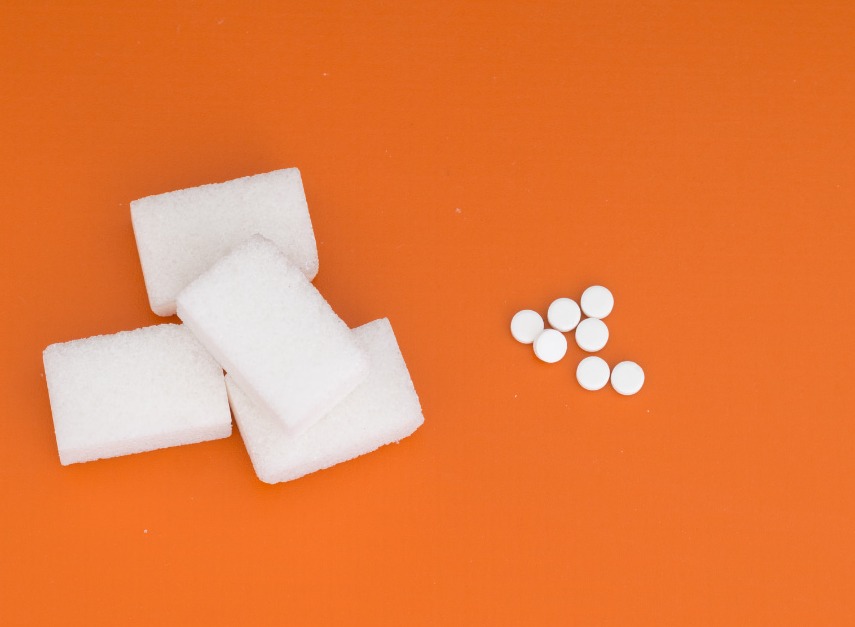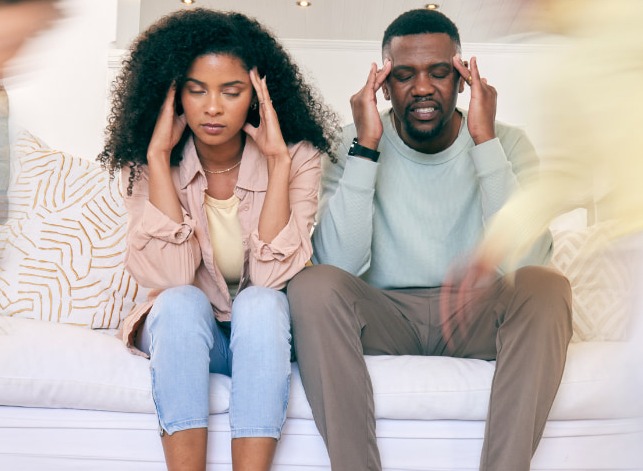- Home
- Share
- Forum
- General forums
- Good to know
- Fatigue: types, causes and ways to reduce
Fatigue: types, causes and ways to reduce
- 328 views
- 1 support
- 7 comments
All comments

coskun
Good advisor
coskun
Last activity on 01/04/2025 at 12:04
Joined in 2015
14 comments posted | 1 in the Good to know group
Rewards
-
Good Advisor
-
Contributor
-
Explorer
-
Evaluator
I FEEL INCREDIBLY TIRED...AND ALSO HAVE FLUCTUATING B/P WHICH CAUSES FAST/RAPID HEARTBEAT.YES, EXERCISE HELPS A BIT BUT WITHIN 48 HOURS I AM IN AGONY WITH TIREDNESS WHICH SURGES THROUGH MY BODY FOR DAYS. MY BRAIN IS COVERED WITH THICK FOGG, AS IT WERE. YES, I DO HAVE SLEEP APNEA, I THINK I HAVE SOMETHING WRONG WITH MY IMMUNE SYSTEM TOO. IT IS LIKE CATCH 22..dO NOT REALLY KNOW HOW TO DEAL WITH IT. DOCTORS NEITHER!!
![]()
retro60
![]()
retro60
Last activity on 11/09/2024 at 17:17
Joined in 2017
11 comments posted | 3 in the Good to know group
Rewards
-
Contributor
-
Explorer
I know exactly how you feel I have osteoarthritis and most peoples comment is 'how painful', my reply is I ignore the pain, but I cannot ignore the fact that everything takes twice as long and I have to keep stopping to rest, doctor is no good, current one is not out of nappies and tends to ignore anything she does not know about. Says more exercise but how can you exercise when not only is it impossible but you have to stop every couple of minutes from exhaustion!
See the signature
J Gibson

Unregistered member
I suffer with tiredness after a meal, no matter how small it is,yet I feel sick if I don't eat. I suffer with sleep apnea,lack of motivation and am isolated because of this. Also I have a drink problem and I am sure that all these factors are causing or aiding the problem.

Unregistered member
I suffer with tiredness after a meal, no matter how small it is,yet I feel sick if I don't eat. I suffer with sleep apnea,lack of motivation and am isolated because of this. Also I have a drink problem and I am sure that all these factors are causing or aiding the problem.

Unregistered member
I suffer with Fatigue a lot,I fall asleep in front on the Television a lot and have to be woken up to go to bed,I fall asleep in the car ( I can't drive ) and even at the table after a meal. It doesn't bother me as it is part of my condition (Stage 4 lung cancer advanced with Secondaries throughout my body ) and the sleep is necessary and I feel good after it.It is not as frequent now as it used to be so I suppose I have got used to my Meds etc.Having Cancer is a full time job so I just go with the flow.
![]()
Pinky58
![]()
Pinky58
Last activity on 03/04/2025 at 11:26
Joined in 2015
3 comments posted | 1 in the Good to know group
Rewards
-
Explorer
-
Evaluator
I Suffer with Depression, I have R.A., LUPUS & FIBROMYALGIA it is extremely hard to go to sleep some nights even when you are exhausted, and the mental fog makes me feel as though another person has taken over my body, I would like mine back but I don't think that will ever happen unless they find cures for every thing
Diana x
![]()
mason2011
![]()
mason2011
Last activity on 03/01/2022 at 16:16
Joined in 2017
2 comments posted | 1 in the Good to know group
Rewards
-
Explorer
i suffer from anxiety panic attacks and depression. my depression is not so much anymore as i am pretty happy and a lot more satisfied in my life but anxiety is constant. i am on paxil and have been more 2 years and went from 110 to 137 and am currently trying to go back to 125 at least and maintain that. im always tired and weak and i was told is was due to paxil. it does help my with panic attacks and that is why it also suppresses my mood and keeps me down
Give your opinion
Survey
Articles to discover...
Subscribe
You wish to be notified of new comments
Your subscription has been taken into account








Margarita_k
Community managerGood advisor
Margarita_k
Community manager
Last activity on 07/10/2020 at 11:39
Joined in 2016
1,195 comments posted | 118 in the Good to know group
1 of their responses was helpful to members
Rewards
Good Advisor
Contributor
Messenger
Committed
Explorer
Evaluator
Fatigue is a common problem among adults. It can be physical or mental, both causing weakness, tiredness and can prevent people from following their usual routine.
Physical fatigue: A person finds it physically hard to do the things they normally do or used to do, for example, climbing stairs. It includes muscle weakness. Diagnosis may involve a strength test.
Mental fatigue: It is harder to concentrate on things. The person may feel sleepy, have a decreased level of consciousness, and in some cases show signs similar to that of an intoxicated state.
Short-term fatigue can mean a simple lack of sleep which can be quickly remedied by a good-night sleep. Actually, insomnia and bad quality sleep can be one of the reasons for fatigue, as well as various sleep disorders like sleep apnea, narcolepsy, etc.
But there can also be other causes for fatigue which does not go away easily. Among them:
1) Mental health issues
It can result from stress, bereavement and grief, eating disorders, alcohol abuse, drug abuse, anxiety, moving home, boredom, and divorce. It can occur with clinical depression, either due to the depression itself, or because of associated problems, such as insomnia.
2) Endocrine and metabolic reasons
Conditions such as Cushing's disease, kidney disease, electrolyte problems, diabetes, hypothyroidism, anemia, kidney disease, and liver disease can all lead to fatigue.
3) Drugs and medications
Some antidepressants, antihypertensives, statins, steroids, antihistamines, medication withdrawal, sedatives, and anti-anxiety drugs can cause drowsiness.
4) Heart and lung conditions
Pneumonia, arrhythmias, asthma, chronic obstructive pulmonary disease (COPD), valvular heart disease, coronary heart disease, and congestive heart failure, among other heart and lung diseases, can cause fatigue.
5) Chemicals and substances
Vitamin deficiencies, mineral deficiencies, poisoning, and consuming too many caffeinated or alcoholic beverages may make it harder to get to sleep, or stay asleep, especially if these are consumed too close to bedtime.
6) Various diseases, conditions, states, and treatments
Cancer, chemotherapy, radiation therapy, chronic fatigue syndrome (CFS), fibromyalgia, systemic lupus, rheumatoid arthritis, obesity, massive blood loss, and weakened immune systems can all cause fatigue.
Fatigue can also be a sign of infection. Some infections that cause tiredness include malaria, tuberculosis (TB), infectious mononucleosis, also known as glandular fever, cytomegalovirus, HIV infection, flu, and hepatitis, among others.
7) Chronic pain
Patients with chronic pain often wake up tired, even after sleeping for a long time, especially if pain disrupts their sleep.The combination of pain and lack of sleep can cause persistent tiredness.
Some diseases and conditions where pain is the main symptom, such as fibromyalgia, are also linked to other conditions, such as sleep apnea and restless leg syndrome. These further worsen symptoms of fatigue.
Finally, your level of energy can strongly depend on your lifestyle.
For example, being overweight increases the risk of fatigue, for various reasons.These include having to carry more weight, and being more likely to have a condition where fatigue is a common symptom, such as diabetes and sleep apnea.
On the other hand, a person who is underweight may tire easily because they have less muscle strength.
And of course, physical activity: there can be too much or too little of it, that causes fatigue. A person who feels tired may not exercise, and lack of exercise can cause further fatigue. Lack of exercise may eventually make it harder and more tiring to perform a physical chore.
Fatigue can also affect healthy individuals after intense mental or physical activity. Working or staying awake for long hours without a break, and especially driving, increases the risk of accidents. Statistics have shown that, among truck and bus drivers, longer hours lead to more accidents.
As there are so many possible causes for your fatigue, the first solution will be to make sure there is no hidden illness. Talk to your doctor if you feel that the fatigue won't leave, despite your sleeping enough, and the lack of other visible symptoms. If it is caused by a health condition, managing this condition correctly can help you reduce fatigue.
However, there must also be a change in lifestyle: diet, rest, physical activity, no stress, etc.
Here is what you can do yourself to get more energy and to feel better and more active. Don't forget to consult your doctor before taking any further steps that require supervision (like taking up sport, etc):
Tips to reduce fatigue
1) Eat often to beat tiredness
A good way to keep up your energy through the day is to eat regular meals and healthy snacks every three to four hours, rather than a large meal less often.
Carenity tip: use our serach engine in the top left corner of the page to search for a discussion on diet related to your condition. You can just type "diet" in the search bar, and you will already see the results. If this dsicussion does not exust, don't hesitate to create it yourself, to be able to exchange tips and ideas with other patients.
2) Perk up with exercise
You might feel too tired to exercise, but regular exercise will make you feel less tired in the long run, and you’ll have more energy. Even a single 15-minute walk can give you an energy boost, and the benefits increase with more frequent physical activity.
Start with a small amount of exercise. Build up your physical activity gradually over weeks and months until you reach the recommended goal of two-and-a-half hours of moderate-intensity aerobic exercise, such as cycling or fast walking, every week.
Carenity tip: take a look at our article on "5 alternatives to running", for those who do not like running or cannot do it due to their health condition. Also, do not forget you can search for "exercise" in the search bar and find an interesing discussion within a discussion group related to your condition.
3) Lose weight to gain energy
If your body is carrying excess weight, it can be exhausting. It also puts extra strain on your heart, which can make you tired. Lose weight and you’ll feel much more energetic. Apart from eating healthily, the best way to lose weight is to be more active and do more exercise.
Carenity tip: search engine. You already know what to do
4) Sleep well
It sounds obvious, but two-thirds of us suffer from sleep problems, and many people don’t get the sleep they need to stay alert through the day. The Royal College of Psychiatrists advises going to bed and getting up in the morning at the same time every day; avoid naps through the day, and take time to relax before you go to bed.
Carenity tip: take a look at these two articles, they may be of use: "10 Ways to beat insomnia and sleep better", "How much sleep do you need?"
5) Reduce stress to boost energy
Stress uses up a lot of energy. Try to introduce relaxing activities into your day. This could be working out at the gym, or a gentler option, such as listening to music, reading or spending time with friends. Whatever relaxes you will improve your energy.
Carenity tip: if you are prone to stress, this article can help you learn how to control it: "Stress, and how to control it"
6) Talking therapy beats fatigue
There’s some evidence that talking therapies such as counselling or cognitive behavioural therapy (CBT) might help to fight fatigue. See your GP for a referral for talking treatment on the NHS or for advice on seeing a private therapist.
Carenity tip: for those who do not feel comfortable talking to strangers face-to-face, forums can be a great help. Here is what our members think about talking to each other and how it helps them: "Does talking help you?"
7) Cut out caffeine
The Royal College of Psychiatrists recommends that anyone feeling tired should cut out caffeine. It says the best way to do this is to gradually stop having all caffeine drinks (this includes coffee, tea and cola drinks) over a three-week period. Try to stay off caffeine completely for a month to see if you feel less tired without it.
You may find that not consuming caffeine gives you headaches. If this happens, cut down more slowly on the amount of caffeine that you drink.
Carenity tip: coffe may be good or bad for you, depending on your condition. Find out more here: "Coffee: pro's and con's".
8) Drink less alcohol
Although a few glasses of wine in the evening helps you fall asleep, you sleep less deeply after drinking alcohol. The next day you’ll be tired, even if you sleep a full eight hours.
Cut down on alcohol before bedtime. You’ll get a better night’s rest and have more energy. The NHS recommends that men and women should not regularly drink more than 14 units a week, which is equivalent to six pints of average strength beer or 10 small glasses of low strength wine.
Carenity tip: if you would like to know what other think about alcohol and health, start a discussion on the forum dedicated to your condition, and ask other patients for their opinion. Be sure to consult your doctor on anything concerning diet, as only they can advise you correctly, taking your health condition into account.
9) Drink more water for better energy
Sometimes you feel tired simply because you’re mildly dehydrated. A glass of water will do the trick, especially after exercise.
Carenity tip: did you know that the benefits of water have been proven by scientists? If not, here are "7 science-based healthy benefits of drinking enough water".
If you have your own tips for fighting off the fatigue, feel free to share them here with other patients.
MedicalNewsToday.com, NHS